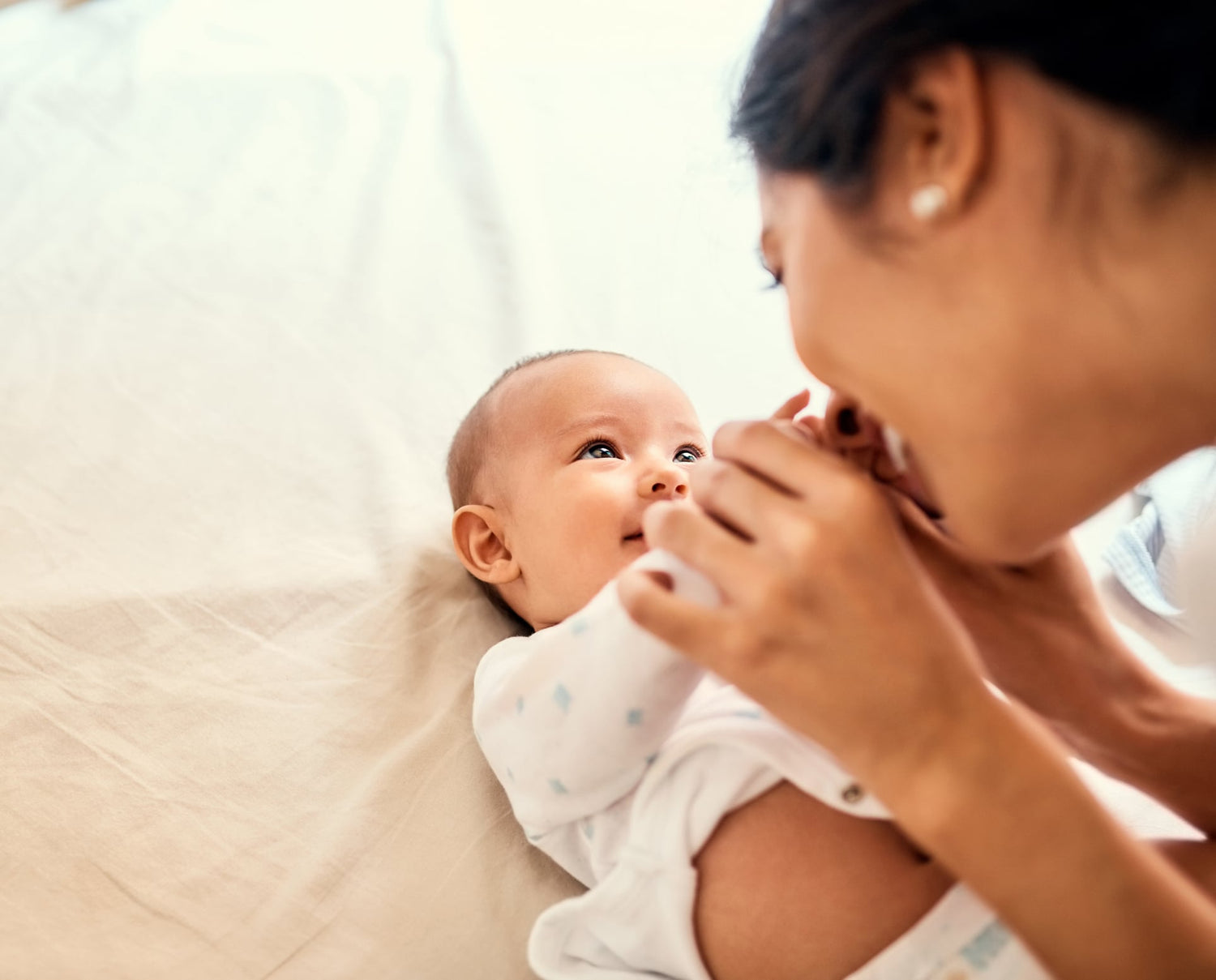Pregnancy can be an exciting – and not to mention - an overwhelming time, especially when it comes to figuring out what to eat. With so much conflicting information out there, it can be hard to know what foods are best for you and your growing baby. But don't worry, I'm here to help!
In this blog, I'm going to go over some of the best foods to eat while pregnant and the foods that you should try to avoid. By the end of this, you'll have a better understanding of what to put on your plate and how it can benefit you and your baby during this special time. I’ll even give you some links for some of my favourite dishes!
The Best Foods to Eat While Pregnant
Protein - Protein is essential for the growth and development of your baby's muscles, organs, and brain. Good sources of protein include lean meats, poultry, fish, eggs, beans, and lentils. These foods will help your baby to build and repair tissues, and also aid in maintaining a healthy immune system.
Fruits and Vegetables - These foods are packed with vitamins, minerals, and antioxidants that are vital for your baby's growth and development. Try to eat a variety of different coloured fruits and vegetables to ensure that you're getting a wide range of nutrients. Some great options include leafy greens, berries, citrus fruits, and cruciferous vegetables like broccoli and cauliflower. Eating a variety of fruits and vegetables can help to ensure that you are getting enough vitamins and minerals like folate, vitamin C, and potassium.
Iron-Rich Foods - Iron helps to make haemoglobin, the protein in red blood cells that carries oxygen to your baby. Iron-rich foods include lean red meat, poultry, fish, and leafy greens. It's especially important for pregnant women to consume enough iron because during pregnancy, the blood volume increases and the body needs more iron to produce more blood. Iron deficiencies can lead to anaemia which can cause fatigue, weakness, and a decrease in the ability to fight off infections.
Calcium-Rich Foods - Calcium is also important during pregnancy, as it helps to develop your baby's teeth and bones. Good sources of calcium include dairy products, leafy greens, and fortified foods like orange juice and cereal. It's important to make sure that you are getting enough calcium during pregnancy to support your baby's growth and to help prevent osteoporosis later in life.
Healthy Fats - Healthy fats are essential for your baby's brain development and can be found in foods like avocados, nuts, and seeds. These foods are also a good source of omega-3 fatty acids which are important for the development of your baby's brain and eyes.
Starchy foods (carbohydrates) in pregnancy - Starchy foods are an important source of energy, some vitamins and fibre, and help you to feel full without containing too many calories. They include:
- Bread
- Potatoes
- Breakfast
- Cereals
- Rice
- Pasta
- Noodles
- Oats
If you are having chips, go for oven chips lower in fat and salt. These foods should make up just over a 3rd of the food you eat. Instead of refined starchy (white) food, choose wholegrain or higher-fibre options such as whole-wheat pasta, brown rice or simply leaving the skins on potatoes.
Foods to Avoid During Pregnancy
Seafood with High Levels of Mercury - Fish like swordfish, shark, marlin and king mackerel, as well as certain types of tuna contain high levels of mercury which can be harmful to your baby's developing nervous system. It's important to limit your consumption (or just avoid) of these types of fish during pregnancy to avoid potential negative effects on your baby's brain development. Try to eat 2 portions of fish each week, 1 of which should be oily fish such as salmon, sardines or mackerel. But note, that you should avoid having more than 2 portions of oily fish a week because it can contain pollutants (toxins).
Raw or Undercooked Meats, Poultry, and Fish - These foods can be contaminated with bacteria that can cause food poisoning. Make sure to cook these foods thoroughly to kill any harmful bacteria. It's important to note that deli meats, hot dogs, and cold smoked fish should also be avoided during pregnancy as they may contain listeria, a bacteria that can cause serious infections.
Certain Cheeses - Cheeses that are made from raw milk, such as feta, brie, and camembert, can be contaminated with listeria, a type of bacteria that can cause serious infections in pregnant women.
Caffeine - Caffeine can cross the placenta and affect your baby's heart rate and sleep patterns. It's best to stick to no more than 200 milligrams of caffeine per day, which is about the amount found in one cup of coffee.
Vitamin A - While vitamin A is important for your baby's growth and development, though too much of it can be harmful. Foods that are high in vitamin A include liver and some supplements, so it's a good idea to limit the amount.
High Fat/Sugar Food & Drinks - Fat is very high in calories, so eating too many fatty foods, or eating them too often, can make you put on weight. Eating too much saturated fat can also increase the amount of cholesterol in your blood, which increases your chance of developing heart disease. Foods that are high in fat, sugar, or both, include:
- All spreading fats (such as butter)
- Oils
- Salad dressings
- Cream
- Chocolate
- Crisps
- Biscuits
- Pastries
- Ice cream
- Cake
- Puddings
- Fizzy drinks
If you're having foods and drinks that are high in fat and sugar, have these less often and in small amounts. Try to cut down on saturated fat, and have small amounts of foods rich in unsaturated fat instead, such as vegetable oils. Find out about saturated and unsaturated fat.
Pregnancy is a wonderful time in your life and with a little bit of care and attention to your diet, you can ensure the best start in life for your baby whilst ensuring that momma is healthy too!
To get the motivation up and stomach rumbling, click here for some of my favourite dishes!





